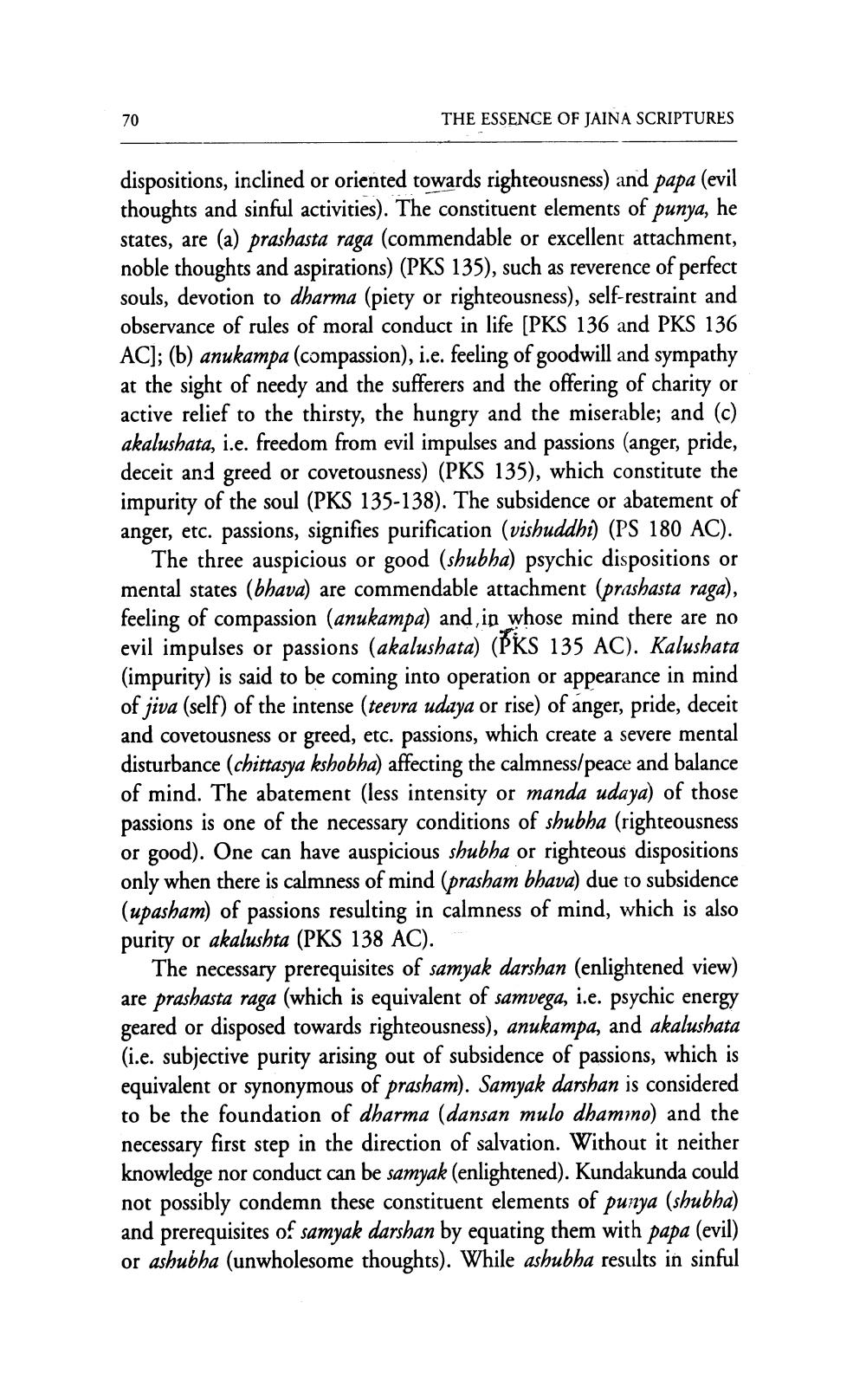________________
THE ESSENCE OF JAINA SCRIPTURES
dispositions, inclined or oriented towards righteousness) and papa (evil thoughts and sinful activities). The constituent elements of punya, he states, are (a) prashasta raga (commendable or excellent attachment, noble thoughts and aspirations) (PKS 135), such as reverence of perfect souls, devotion to dharma (piety or righteousness), self-restraint and observance of rules of moral conduct in life (PKS 136 and PKS 136 AC]; (b) anukampa (compassion), i.e. feeling of goodwill and sympathy at the sight of needy and the sufferers and the offering of charity or active relief to the thirsty, the hungry and the miserable; and (c) akalushata, i.e. freedom from evil impulses and passions (anger, pride, deceit and greed or covetousness) (PKS 135), which constitute the impurity of the soul (PKS 135-138). The subsidence or abatement of anger, etc. passions, signifies purification (vishuddhi) (PS 180 AC).
The three auspicious or good (shubha) psychic dispositions or mental states (bhava) are commendable attachment (prashasta raga), feeling of compassion (anukampa) and, in whose mind there are no evil impulses or passions (akalushata) (PKS 135 AC). Kalushata (impurity) is said to be coming into operation or appearance in mind of jiva (self) of the intense (teevra udaya or rise) of anger, pride, deceit and covetousness or greed, etc. passions, which create a severe mental disturbance (chittasya kshobha) affecting the calmness/peace and balance of mind. The abatement (less intensity or manda udaya) of those passions is one of the necessary conditions of shubha (righteousness or good). One can have auspicious shubha or righteous dispositions only when there is calmness of mind (prasham bhava) due to subsidence (upasham) of passions resulting in calmness of mind, which is also purity or akalushta (PKS 138 AC).
The necessary prerequisites of samyak darshan (enlightened view) are prashasta raga (which is equivalent of samvega, i.e. psychic energy geared or disposed towards righteousness), anukampa, and akalushata (i.e. subjective purity arising out of subsidence of passions, which is equivalent or synonymous of prasham). Samyak darshan is considered to be the foundation of dharma (dansan mulo dhammo) and the necessary first step in the direction of salvation. Without it neither knowledge nor conduct can be samyak (enlightened). Kundakunda could not possibly condemn these constituent elements of punya (shubha) and prerequisites of samyak darshan by equating them with papa (evil) or ashubha (unwholesome thoughts). While ashubha results in sinful




